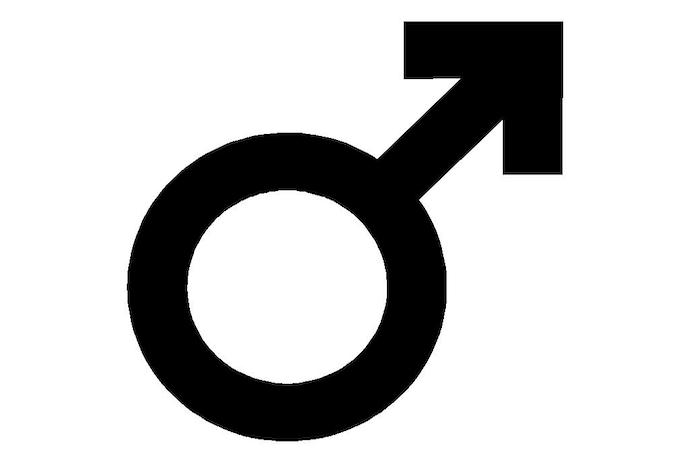In her excellent book Down Girl: The Logic of Misogyny, the philosopher Kate Manne coined the term Himpathy, which she defined as “the excessive sympathy sometimes shown toward male perpetrators of sexual violence.” This tendency stems “largely from capacities and qualities of which we’re rarely critical: such as sympathy, empathy, trust in one’s friends … their naïve deployment will tend to further privilege those already unjustly privileged over others.”
Himpathy is powerful. It performs a double social magic: erasing the voices of those who suffer at the hands of men while also reinforcing the power of men. We call this vortex of violence patriarchy.
So when, to use one of Manne’s examples, Brock Turner was caught raping a woman, his father pleaded for everyone to think of the harm that had come to his son (i.e., the rapist). Why should he lose his life’s great prospects “over twenty minutes of action”? The judge in the case agreed with the father and the rest is our usual history.
The white male rapist got less time in jail than, for example, a Black woman who simply tried to cast a vote, and the instinct to sympathize with an abusive man continued to be the background music we all have to keep hearing.
The concept of Himpathy can help us think about a story unfolding right now. Jan Joosten, a senior biblical scholar at Oxford University who holds one of the most prestigious professorships in the field, was just sentenced to a year in prison. He had around twenty-seven thousand images and one thousand videos of child porn on his computer, including of child rape. Many of the victims were Asian children. So we have another entry in the long history of white men participating in the violent subjugation of non-white people.
But, as in so many instances of men in positions of power who are outed as abusers, the story doesn’t end there. The story should end with patriarchy because that’s where the pervasive phenomenon of men abusing others begins. It’s where the violence and exploitation is nurtured, made invisible, and transformed into the normal everyone else just has to live with.
What does Joosten have to do with patriarchy? As news of his child-rape porn began to spread through the social-media ether, a predictable but still horrifying expression of Himpathy began to percolate.
Edward Cook, an established white male scholar at a major research university, directs our pity toward Joosten and our “rage” away from the man. He takes us on a tour of the feelings he attributes to Joosten, who “fell into an addiction which, I do not doubt, he earnestly wants to be liberated from” and culminates by writing of his prayers for “Jan” in the same sentence as prayers “for the children” who were raped for Joosten’s pleasure. Like other forms of Himpathy that Manne explores, in Cook’s hands Joosten even morphs into the victim, as “he too has been exploited by the pornographers.”
Love the sinner, hate the sin. Yes, Cook opens by being “appalled” over “the recent news about Prof. Jan Joosten” and urges “compassion … to the innocent children.” But then the paths of sympathy flow to Joosten, not his thousands of victims who vanish behind the strangling shadow of empathy for a man who facilitated their abuse.
This response is not a recipe for interrupting the culture of abusive men. It instead relies on a commonsense emotional posture that restrains outrage over violent abuse. Himpathy works unintentionally through affective capacities of which we are not usually critical.
Cook’s post channels another form of Himpathy as well. He stipulates that “the wrong response to Jan’s misdeeds … is to ban, censor, and eliminate Jan’s scholarly work,” which “stands on its own, and is indispensable.” Indeed, “I will continue to use it, cite it, and honor it for its excellence.” What remains notable about Joosten is that he is “one of the finest Hebraists of our time.”
Similarly, another man was quick to emphasize that even though what Joosten did was bad, we must continue to promote the scholarship of an “always kind, fair, modest (!) and above all … erudite philologist … Nothing would invalidate his scholarship in my opinion.” Yet another male commentator opined “I do not understand judging a person by their greatest moral failings, instead of their greatest successes … you can separate his scholarship [from] his moral failings.”
Love the scholarship, hate only the scholar’s sin … which we can dismiss as irrelevant?
But, as Annette Yoshiko Reed, Professor of Ancient Judaism at NYU, articulated within this diffuse online discussion, “the rhetoric of separating a person from their scholarship is just RHETORIC. In PRACTICE, it is applied unevenly to different kinds of people—and nowhere more often heard than when protecting prestigious white men from responsibility for their own deeds.”
This is esp the case b/c the rhetoric of separating a person from their scholarship is just RHETORIC. In PRACTICE, it is applied unevenly to different kinds of people—and nowhere more often heard than when protecting prestigious white men from responsibility for their own deeds
— Dr. Annette Yoshiko Reed (@AnnetteYReed) June 23, 2020
Or, more sharply, Anthea Butler (Professor of Religious Studies at UPenn), tweeted, “Enough of this bullshit about the conviction doesn’t mean his scholarship is bad. He was probably sitting at his desk looking at a child being raped while trying to write an article. WTF is wrong with you ignorant, soulless folks who think scholarship is EVERYTHING?”
Enough of this bullshit about the conviction doesn't mean his scholarship is bad. He was probably sitting at his desk looking at a child being raped while trying to write an article. WTF is wrong with you ignorant, soulless folks who think scholarship is EVERYTHING?
— ProfB (@AntheaButler) June 23, 2020
Professors Reed and Butler are differently highlighting a basic insight about scholarship: we cannot separate the work from the person. We cannot love the scholarship and feel better about ourselves for hating the scholar’s sin.
Whether intended or not, to promote a person’s work by engaging it is to amplify their prestige and to route legitimacy to them. And this disproportionately happens for powerful white men in the academic study of Bible and religion.
Terry Eagleton famously illustrated the background point here by explaining that if he sits on a bench that says Whites Only, “by the acting of sitting on it, I have supported racist ideology. The ideology, so to speak, is in the bench, not in my head.”
Translating back to Joosten: the instinct to protect the reputation of an abuser’s scholarship is a form of Himpathy. It strengthens a culture of identification with and deference to powerful men in the field. This is the very culture of deference that shielded them from consequences during their years of abuse, valued protecting their reputations (often as “nice guys” with “great character”) more than the bodies of women and children, and ensured their continued ability to exploit and prosper.
A common objection to this line of thinking is that such “cancel culture” starts us down a slippery slope. Do we have to stop reading John Steinbeck if he was a jerk too?!
Aside from the logically fallacious nature of slippery slope arguments, as critics of “cancel culture” hysteria like Sarah Hagi and Danielle Butler have pointed out, such objections are really distractions. They function to shield those in positions of power from critique when they’re caught having abused and exploited others—to shield predators whom we have celebrated with monuments or lionized as the great scholars whose work must be cited. In this way the critics, vocal victims, and powerless are magically remade into the real aggressors. Uncomfortable discussions about the politics of who gets to have a voice—or, as historian Ellen Muehlberger urges us to think about, who gets the privilege of having their work cited—are stifled. Sounds like Himpathy again in a nutshell.
Responses to Joosten among non-scholars also illustrate the instinct to Himpathy and its relationship to reinforcing patriarchal power. In the open Facebook group, Nerdy Language Majors, some opined that Joosten’s consumption of child-rape demonstrates “the damage of liberal theology” since he was a minister at a church not deemed evangelical enough.
In the Society for New Testament Study Facebook group (note: the group is not sanctioned by the SNTS academic society), various non-scholar members blamed “the sexual revolution” for the supposedly new phenomenon of pedophilia and powerful men enjoying the rape of children. One poster even doubled-down when pressed: “I don’t know what you have against patriarchy. I lived in Asia a good long time, and have seen some positive examples of the thing.”
Joosten’s child-pornography thus transforms into evidence for the necessity of conservative Christian patriarchy. Himpathy comes full-circle! The victims of male domination become invisible except as props to support further male domination.
This is the magic of Himpathy. In the case of Joosten, it mixes with traditional Christian conventions that we don’t often think of as channels of power: the instinct not to “judge” (at least powerful men), to identify with “sinners” (again, when they’re powerful men), to deploy narratives about the chaos wrought by abandoning conservative gender norms, and especially to love the “sinner” (scholarship) and hate the “sin” (bad thing a scholar did). But we must think critically about the politics of these dispositions.
To come back to Manne, we can have misogyny without misogynists. While there are, of course, conscious misogynists, the mechanisms of misogyny reproduce violent patriarchy quite apart from people’s intentions. Himpathetic responses to Joosten surely perpetuate the culture that harmed his victims, but not because people consciously decided to sympathize with him. Presumably most would vigorously reject the idea that they did. But their actions still re-center him.
Forget tinkering with “love scholarship and hate the scholar’s sin.” Let’s try something different: love the victims and hate anything that exploits them. This means we must burn patriarchy to the ground. And we can start by rejecting Himpathy wherever we see it.
*Author’s Note: I have asked the editors to modify the initial version of this piece to remove material that, upon additional consideration and communication with its writer, erred in its interpretation of language about withholding judgment. I apologize for this misrepresentation.





